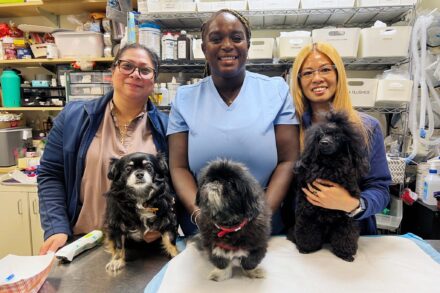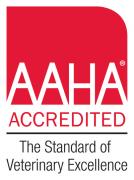Medication Safety for Pets

Medication Safety for Pets
Last winter, in recognition of National Poison Prevention week, I wrote about how an unusual treatment used at The Animal Medical Center saved the life of Sadie, a dog who had ingested a bottle of ibuprofen.
Not all pets that accidentally ingest medications are as lucky as Sadie. The handsome Cane Corso, Agusto, shown here, died from accidental ingestion of grandpa’s drugs.
To spare your family the heartbreak of an accidental pet death, here are my tips on keeping the family pets safe from medications.
1. Childproof does not mean pet proof
Despite the fact that you cannot pry a prescription bottle open with your own two hands, I guarantee between their teeth and nails, your pet will be able to open a bottle in only a few seconds. Don’t count on the safety lid to protect your pet; keep medications stored in a pet proof area.
2. Pet proof storage
Your dresser, the nightstand, and the bathroom counter are not pet proof areas. If you have a curious kitty, be sure medications are kept in a cabinet with a tight latch. Try the childproofing aisle in your local hardware store for ideas on how to prevent unauthorized cabinet entry by your pets.
3. Don’t shake, rattle or roll
Shaking a pill bottle to get your pet’s attention or giving your pet a treat after they come for the rattle of pills in the container will make your pet very interested in the pill bottles. Promote safe behavior and clicker train your pet instead of using a pill bottle.
4. Team approach to toxicity
If you have more than one pet, keep in mind they may take a team approach when getting into the medication stash. For example, the pill bottles on your dresser are quickly knocked down by your agile cat and can find their way into the jaws of your clever dog. Once the bottle is opened everyone can help themselves to the surprise inside.
5. Worry about purses and backpacks
Granny is likely to have a pocketbook full of little boxes and vials of medications. When she comes to visit, keep her handbag hidden from your cat or dog to prevent them from popping open one of her containers and testing the pills.
6. Travel disaster
We all love to take our pets everywhere we go, but your friends and family may not have their homes pet proofed. Scout out their counters, nightstands and dressers for dangerous bottles of medication. Confine your dog in their crate or stroller if the home is filled with dangerous medications. For the traveling cat, consider a kitten playpen.
7. Keep important phone numbers handy
- Your veterinarian
- The closest animal ER
- Pet Poison Hotline, 800-213-6680
- ASPCA Animal Poison Control, 888-426-4435


































